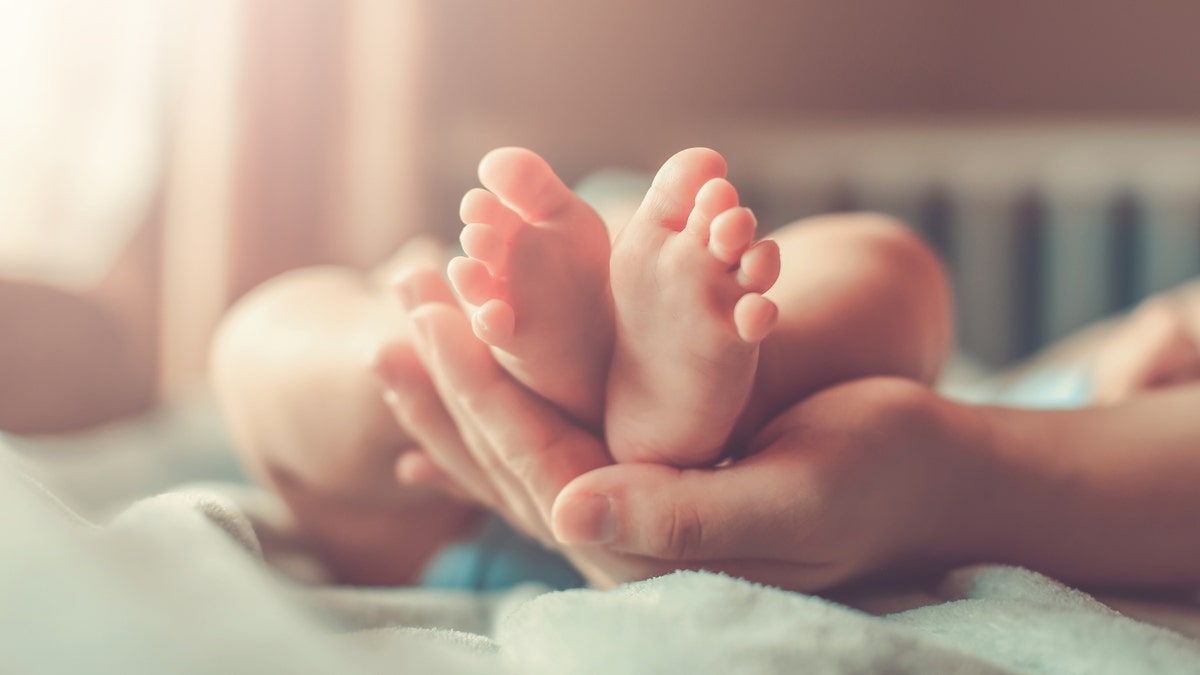Having a baby during the coronavirus; precautions you need to know
Having a baby during the coronavirus pandemic? Dr. Manny Alvarez, a Fox News contributor and chairman of obstetrics and gynecology at Hackensack University Medical Center in New Jersey, shares advice on extra precautions you can take if you’re pregnant during the COVID-19 outbreak.
Get all the latest news on coronavirus and more delivered daily to your inbox. Sign up here.
Heads up, expectant women: If you have tested positive for COVID-19, you baby should also be tested for the novel virus shortly after birth, the Centers for Disease Control and Prevention (CDC) said in new guidelines issued this week.
“Testing is recommended for all neonates born to women with confirmed or suspected COVID-19, regardless of whether there are signs of infection in the neonate,” the federal health agency said in the guidelines released Wednesday.
BRINGING HOME A NEWBORN AMID CORONAVIRUS? NATIONAL SURVEY HIGHLIGHTS TOP CONCERNS
Though information is limited at this time, the CDC warned that infants less than a year old “may be at higher risk for severe illness from COVID-19 compared with older children.”
Some infants infected with SARS-CoV-2, the novel virus that causes COVID-19, have shown signs of the virus that include fever, lethargy, cough, vomiting, and diarrhea, as well as “increased work of breathing” and “feeding intolerance or decreased intake,” as per the federal health agency.

“Testing is recommended for all neonates born to women with confirmed or suspected COVID-19, regardless of whether there are signs of infection in the neonate,” the federal health agency said in the guidelines released Wednesday. (iStock)
“The extent to which SARS-CoV-2 infection contributed to the reported signs of infection and complications is unclear, as many of these findings can also be seen commonly in term and preterm infants for other reasons (e.g., transient tachypnea of the newborn or neonatal respiratory distress syndrome),” the CDC said, noting that reports show some infants infected with COVID-19 “had asymptomatic or mild disease and recovered without complication.”
CORONAVIRUS SPARKS INCREASED INTEREST IN HOME BIRTHS BUT EXPERT ADVISES AGAINST IT
However, “severe disease requiring mechanical ventilation has been reported in COVID-19 positive neonates,” the CDC warned.
The agency advised all newborns — regardless if they are symptomatic or not — who are born to moms with a “confirmed or suspected” case of COVID-19 should be tested at 24 hours of age. Testing is recommended even if the mother is not showing symptoms of an infection.
“If initial test results are negative, or not available, testing should be repeated at 48 hours of age,” the agency advised. Meanwhile, for asymptomatic newborns who are expected to be discharged from the hospital within 48 hours, “a single test can be performed prior to discharge, between 24-48 hours of age.”
DR. MANNY ALVAREZ: HOW TO PREPARE FOR LABOR DURING THE CORONAVIRUS PANDEMIC
If feasible, CDC officials also advised that a newborn should be temporarily separated from its mother if she has a confirmed or suspected case of the virus in an effort to lower the risk of transmission to the child.
“Efforts are underway to address the knowledge gap of transmission between mother and neonate during pregnancy, delivery and in the postpartum period, and recommendations will be updated as new information informing the risk-benefit of maternal-infant separation is available,” the CDC said, though it noted babies who contract the virus are likely exposed to infectious respiratory droplets from their mothers, caregivers, visitors, or health care personnel with COVID-19 after birth.









































